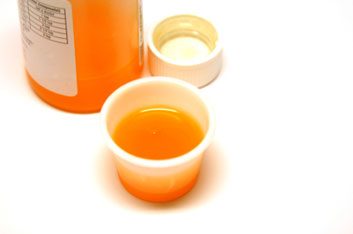When can kitchen spoons be dangerous?
Don’t you hate those persistent coughs that stick around after a cold? I’ve had one for a little over two

Don’t you hate those persistent coughs that stick around after a cold? I’ve had one for a little over two weeks now, and my doctor just prescribed some heavy-duty prescription cough syrup that will ‘knock me out for the night’ (his words). No doubt it’s powerful stuff. So it’s fortunate that I just read this press release from Cornell University about the potential dangers of measuring out cough medicine incorrectly. The culprit: common kitchen spoons.
A study recently published in the journal Annals of Internal Medicine found that when asked former cold and flu sufferers to measure out one teaspoon of medication using spoons of various sizes, the subjects poured an average of eight percent too little medication when using a small spoon, or 12 percent too much medicine when measuring with a larger spoon.
That might not exactly seem like an overdose, but the study’s lead researcher, Dr. Brian Wansink, Director of the Cornell Food and Brand Lab says the incorrect measurements do make a difference. “Twelve percent more may not sound like a lot, but this goes on every four to eight hours, for up to four days. So it really adds up’to the point of ineffectiveness or even danger,” Wansink says in the press release. (Click through to watch Wansink explain this in a video.)
I’ll admit that I often reach for a kitchen spoon when measuring out my liquid medication. But I certainly don’t want to take more of my super-strength cough medicine than is recommended. To ensure you’re taking the correct amount, make sure you measure out your medication in a proper medicine-measuring spoon.
How do you measure out your liquid medications?
Related:
‘ Do cough medications work?
‘ How to fight cold symptoms
‘ Natural home remedies: Coughs




